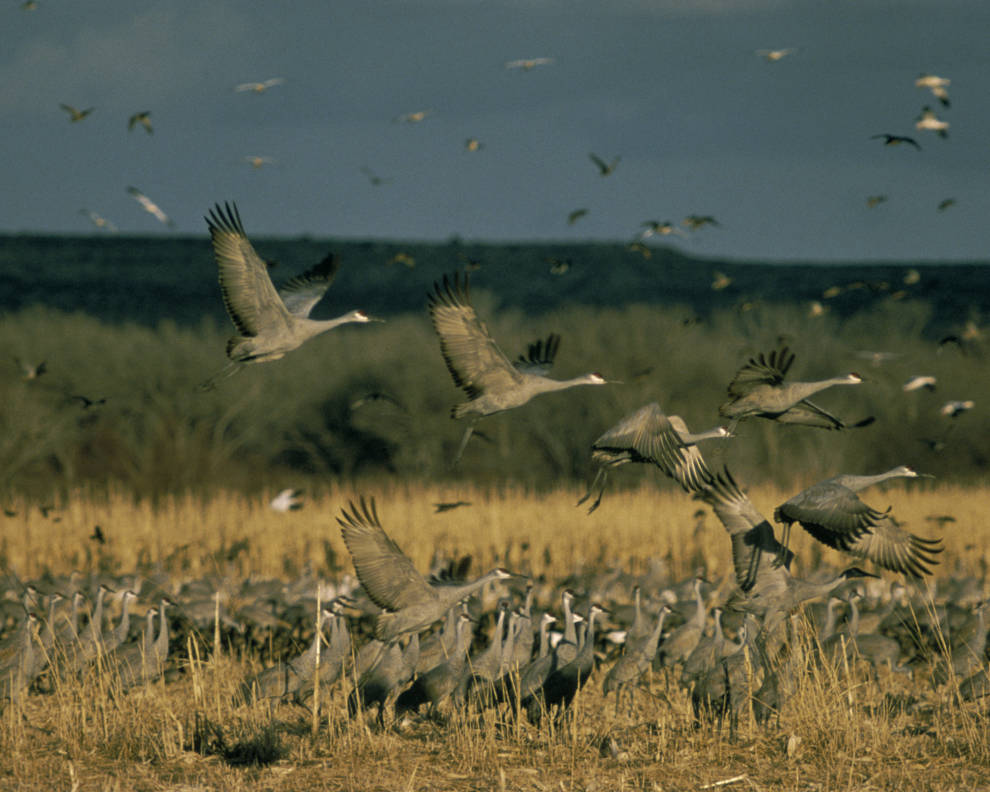As part of ongoing educational efforts around the importance of the Endangered Species Act, the Sierra Club yesterday helped host a congressional briefing, A Cleaner, Healthier, Richer America: Benefits of Biodiversity and the Endangered Species Act. Dr. E.O Wilson, Dr. Aaron Bernstein, and Dr. Stephen Polasky joined to discuss biodiversity from the perspectives of preservation, human health, and the economy. This interconnected conversation highlighted the real importance of biological life from megafauna to micro-organisms so tiny that the human eye cannot detect, to the success of the planet and the human species.
At the briefing, Dr. E.O. Wilson spoke about his latest book, Half-Earth in which he argues that in order to prevent the mass extinction of species, including humans, we must preserve half of the earth's habitat for 80 percent of species on the planet. By preserving half of the earth, we then protect species from the primary drivers of extinction such as: loss of habitat, invasive species, overpopulation, and over-harvesting. Preserving 50 percent of our public lands will ensure a healthy and diverse planet.
After the excellent opening by Dr. Wilson, Dr. Aaron Bernstein, MD spoke deeply about the importance of biodiversity for public health. Dr. Bernstein, a pediatrician in Boston, Massachusetts, opened his talk by citing the Endangered Species Act of 1975, Section 2, Part 3, which states, “these species of fish, wildlife, and plants are of esthetic, ecological, educational, historical, recreational, and scientific value to the Nation and its people.” Even in the original legislation there was recognition that species, whether large or small, have not just esthetic and ecological value, but educational and scientific value as well. At least ten antibiotics that are used in modern medicine come from nature and 55 percent of drugs used today to treat various illnesses are derived from nature solely. Without biodiversity in the natural world, whether it is penicillin or the Madagascar Periwinkle which is used in chemotherapy to treat acute blood cancers in children, we would lack the necessary natural treatments to cure our bodies. Protection of a diversity of species is important because it leads to saving lives. For example, the discovery of the Sea Sponge (tectitethya crypta) was instrumental in creating ATZ, the first treatment for HIV. Whether it is a flower or plant species, a sea sponge, snail, or a small microbe, these naturally occurring organisms are life savers and are important to protect at every level.
The last speaker, Dr. Stephen Polasky, delved into the economic value of significant habitats and species. Often people are told they have to choose between economic gain and habitat protection, but that is simply not the case. When you add in services that ecosystems provide you begin to see economic gains within the capitalist world and society. Take farming for example. Access to natural resources, pollinators and other entities--ecosystem services-- provide economic gain from the conservation of habitat. The two exist together, as is proven when we value the services that our ecosystem can provide. Included in these services can be the positive effect open spaces and trees have on our environment, clean air and even clean water. Our environment can be an economic driver for the good.
The interconnected and interdependent perspectives of Dr. Wilson, Dr. Bernstein, and Dr. Polasky illustrate the wide-reaching importance of preserving biodiversity. The Endangered Species Act is greater than just a list of animals, plant, and insect species; it’s a safety net for our interconnected ecosystem, for our economy, medicine and social biology. View the talk in its entirety.
